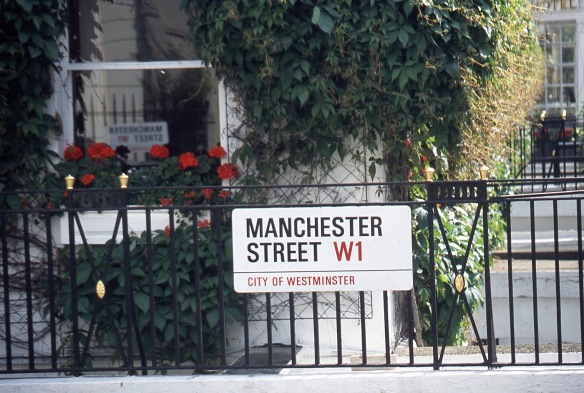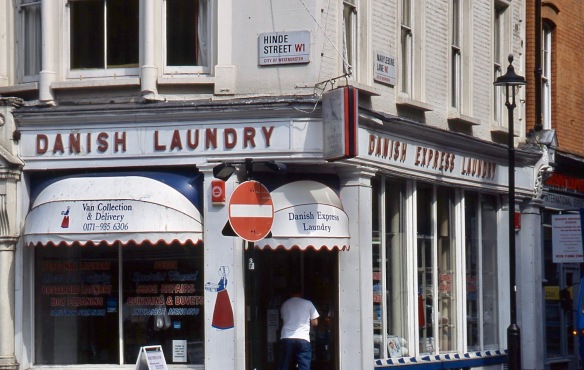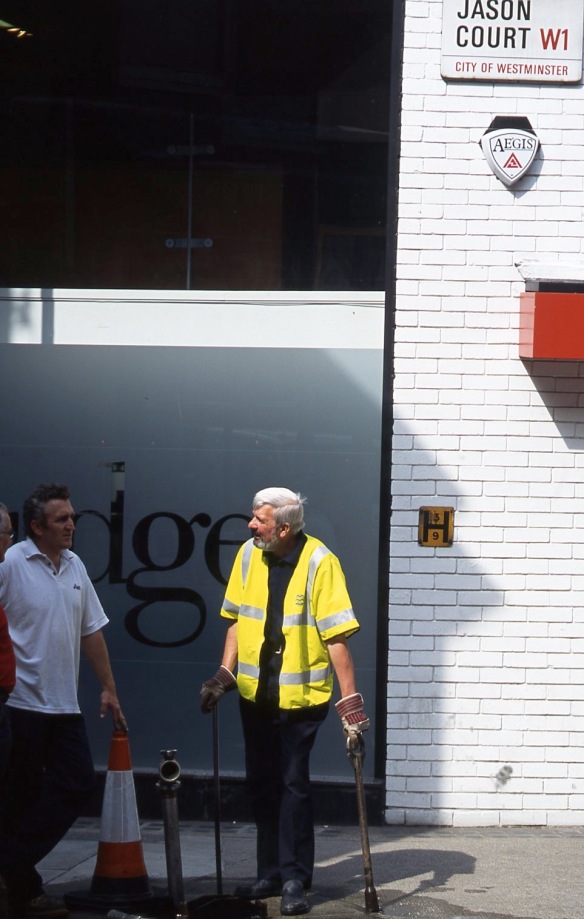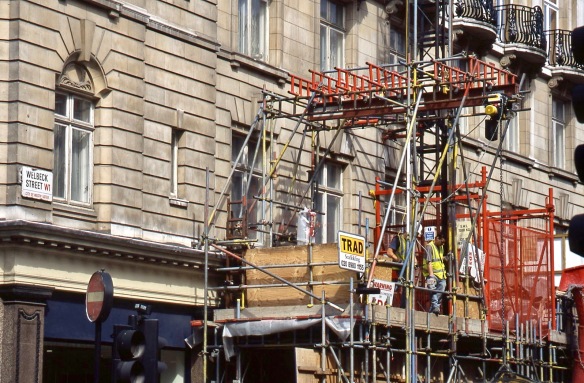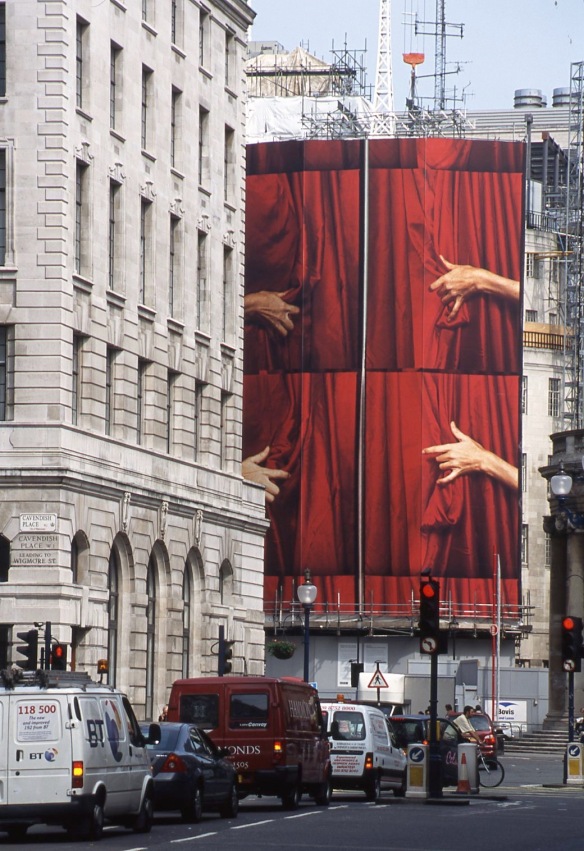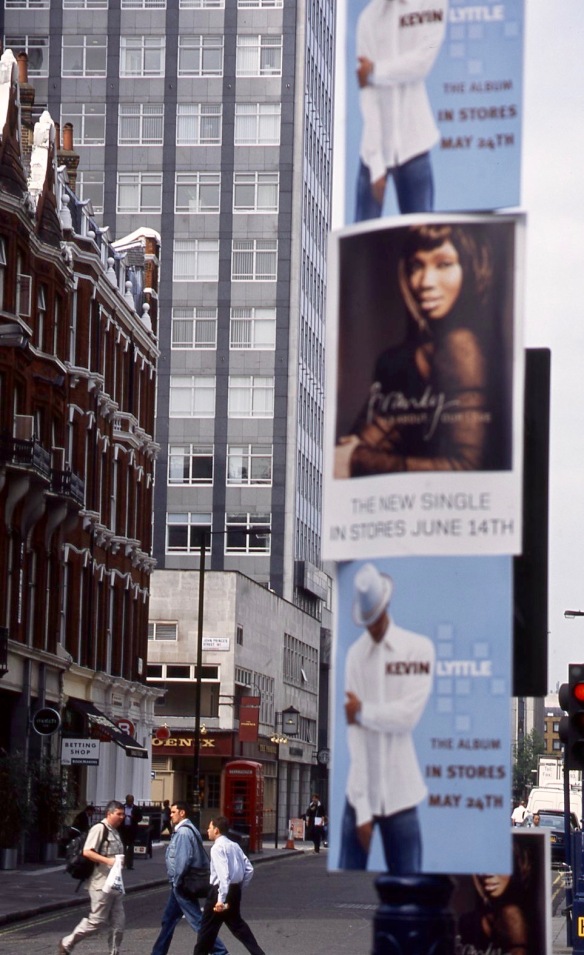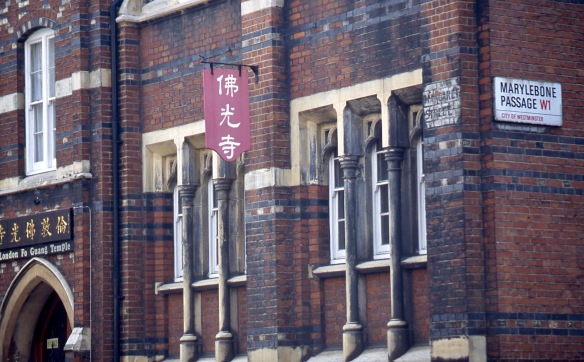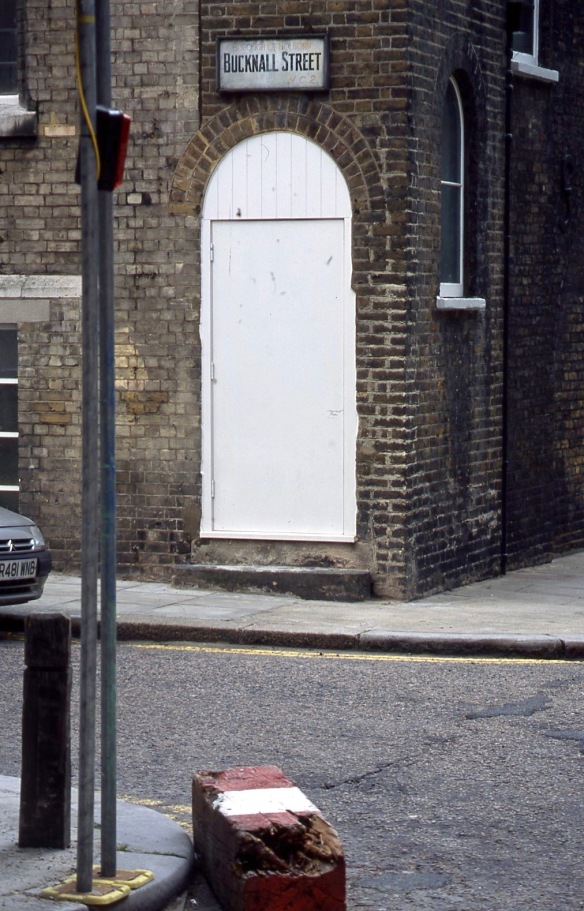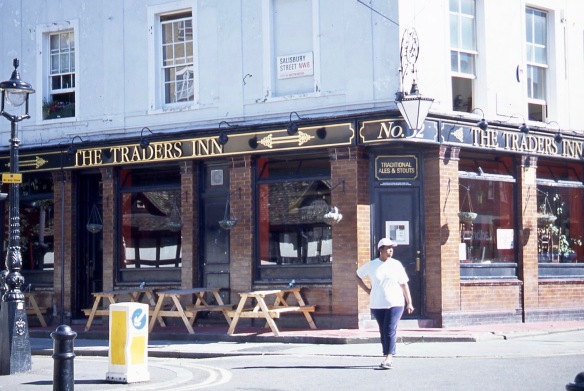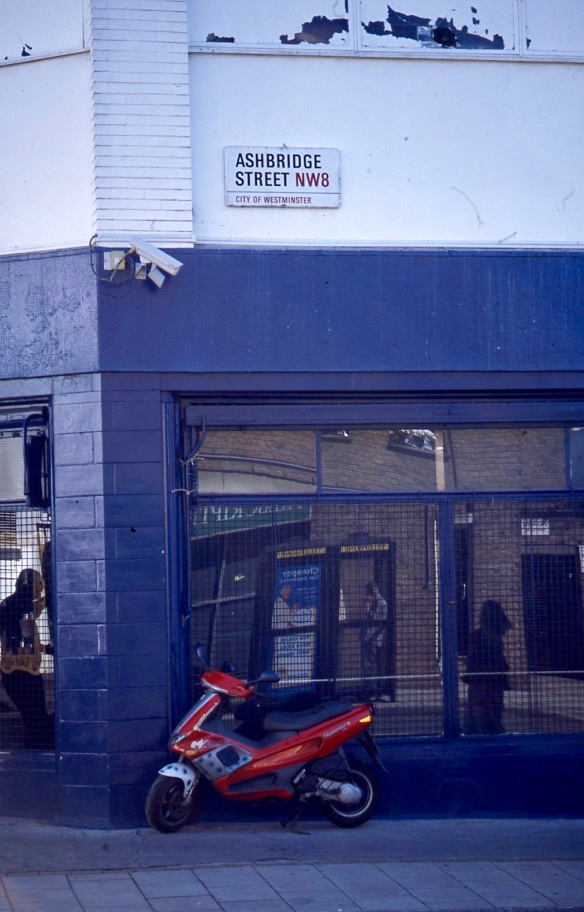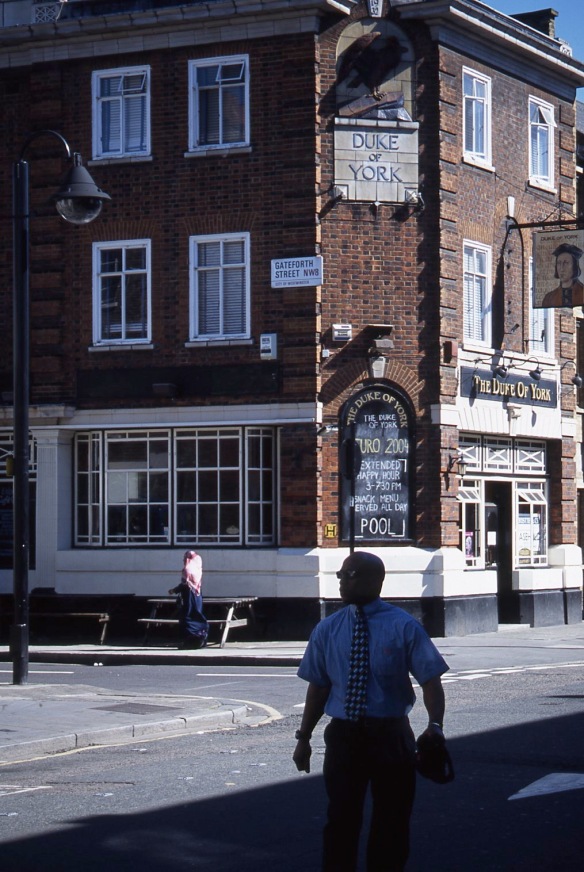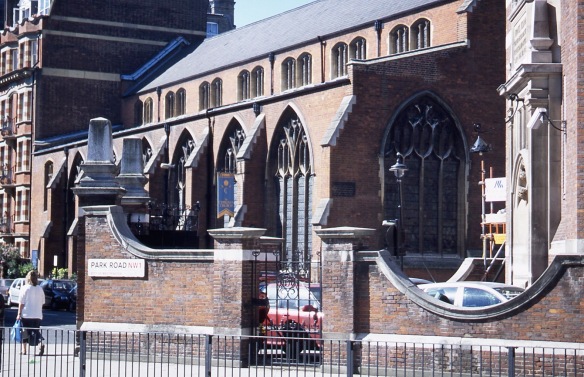CLICK ON IMAGES TO ENLARGE. REPEAT IF NECESSARY
The car broke down as Jackie was leaving for a shop yesterday afternoon. We counted our blessings that this had not happened during our weekend trip to Nottingham. It did, however, mean that a domestic day was in order. Consequently I scanned another dozen colour slides from the Streets of London Series (May – June 2004). These were uploaded into WordPress without too much need for gnashing of teeth.
Manchester Street W1, Lies between Baker Street and Marylebone High Street;
not far away is the Danish Express Laundry on the corner of Marylebone Lane at 16 Hinde Street, W1. This appears to be very popular.
Still in Marylebone, was this gentleman attending to the water supply?
There was the ubiquitous scaffolding in nearby Welbeck Street, W1;
and, in Portland Place, near Cavendish Place, W1, an example of the imaginative screening that is sometimes erected round more extensive building works.
Regular readers will realise that the music posters in Margaret Street are out of focus because I was fixed on featuring John Prince’s Street sign. Kevin Little is clearly visible, but I cannot read the legend of the young lady who also adorns the post. I think she is the UK R & B singer, Javine.
Wikipedia tells us:
“The London Fo Guang Shan Temple is located at 84 Margaret Street, London W1.[1] It was established in 1992 and is also known as International Buddhist Progress Society. It is one of two British branches of Fo Guang Shan Monastery, Taiwan.[2]
The temple is located in a former parish school and Church House of 1868-70 designed by William Butterfield. The building is grade II* listed.[3]”
On the wall of the earlier religious establishment can be seen the remnants of its contemporary street sign.
Bucknall Street, WC2 lies just south of New Oxford Street. Scaffolding was also in place there. The wood block is probably in situ to prevent drivers mounting the kerb in this narrow little street.
The Traders Inn at 52 Church Street on the corner of Salisbury Street, NW8, stands on a site from which gas masks were issued in 1939. Memories of that time are recorded in http://www.churchstreetmemories.org.uk/page/bert_black
Whoever parked his or her bike in Ashbridge Street, NW8, was taking a risk. Perhaps the reflected gentleman using the public phone box hadn’t yet caught up with the mobile revolution.
The two figures in this photograph are indicative of the multi-cultural nature of our capital. Gateforth Street NW8 was named Capland Street until 1915. The Duke of York was rebuilt in its present form in 1932, and closed in 2007, three years after it entertained followers of Euro 2004. I believe it is now a restaurant.
St Cyprian’s Church commemorates the third century Christian martyr and Bishop of Carthage. The current building dates from 1903, and its history is told in: https://en.wikipedia.org/wiki/St_Cyprian’s,_Clarence_Gate
This evening we dined on Jackie’s perfect pork paprika, new potatoes, and crunchy carrots and cauliflower. Jackie drank Hoegaarden, and I drank more of the Côtes du Rhone. Observant readers will note that we have enjoyed this basically Hungarian dish three days in succession. That is because, fortunately, the Culinary Queen had made enough for six servings.
